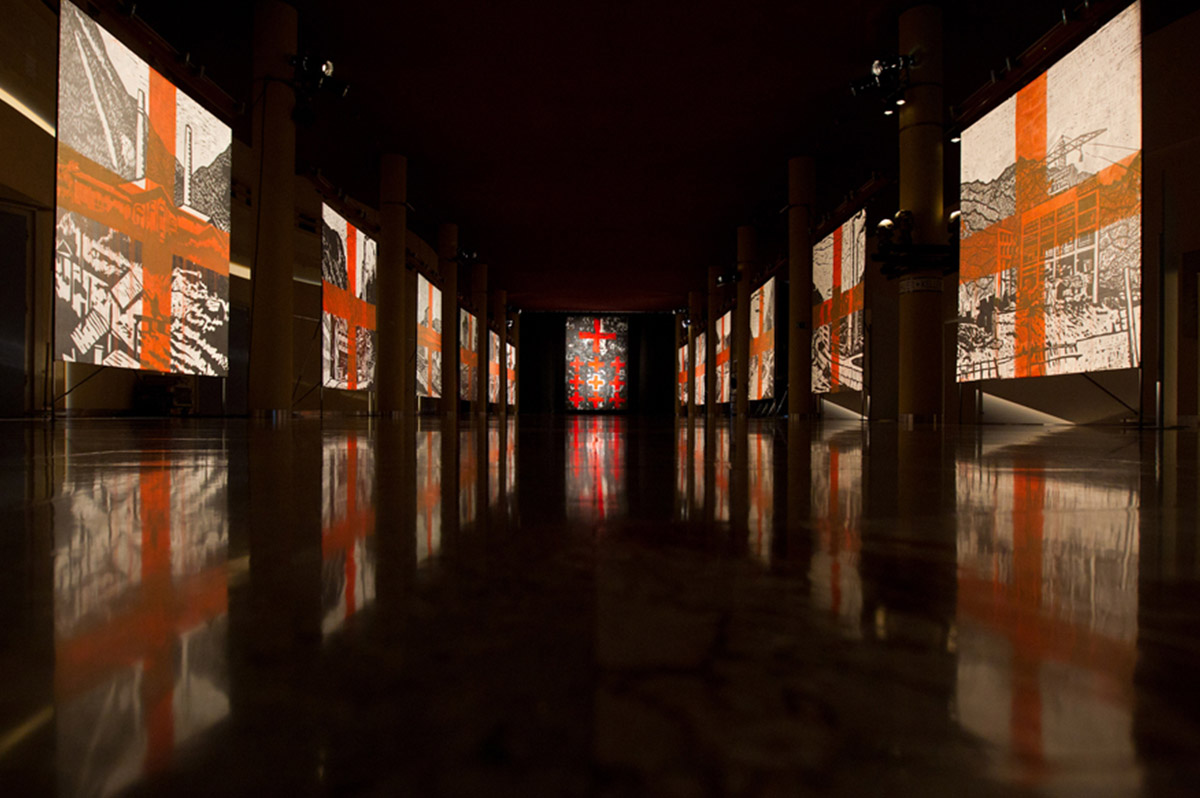Laibach (SI)

Laibach je umjetnička grupa koja djeluje u polju glazbene industrije i vizualne umjetnosti od osnutka 1980. godine u slovenskom rudarskom centru Trbovlje. Članovi Laibacha su od 1984. Godine suosnivači i glazbeno krilo umjetničkog kolektiva NSK (Neue Slowenische Kunst). “Laibach” je njemački naziv za Ljubljanu, glavni grad Slovenije, a umjetničko i medijsko djelovanje grupe predstavljalo je jednu od najsubverzivnijih pojava posljednje dekade socijalističke Jugoslavije. Osim statusa nacionalnog skandala, svojom inačicom industrijske glazbe te stilski, vizualno i dramaturški usklađenim nastupom, Laibach su ostvarili globalni uspjeh. Estetika koju razvijaju kao totalni dizajn svih svojih aktivnosti, preuzela je sva obilježja stila totalitarnih društava koja su se, označivši 20. stoljeće, prelila u globalnu civilizaciju neoliberalizma 21. stoljeća.
ENG
Laibach is a music and cross-media group from Slovenia established on the 1st of June, 1980 in Trbovlje (1). The name of the band is the historic German version of the name Slovenia’s capital Ljubljana. From the start Laibach has developed a “Gesamtkunstwerk” – multi-disciplinary art practice in all fields ranging from popular culture to art (collages, photo-copies, posters, graphics, paintings, videos, installations, concerts and performances). Since their beginnings the group was associated and surrounded with controversy, provoking strong reactions from political authorities of former Yugoslavia and in particular in the Socialist Republic of Slovenia.
Their militaristic self-stylisation, propagandist manifestos and totalitarian statements have raised many debates on their actual artistic and political positioning. Many important theorists, among them Boris Groys and Slavoj Žižek, have discussed the Laibach phenomenon both from an analytical as well as critical cultural point of view. The main elements of Laibach’s varied practices are: strong references to avant-garde art history, nazi-kunst and socialist realism for their production of visual art, de-individualisation in their public performances as an anonymous quartet dressed in uniforms, conceptual proclamations, and forceful sonic stage performances – mainly labelled as industrial (pop) music. Laibach is practicing collective work, dismantling individual authorship and establishing the principle of hyper-identification. In 1983 they have invented and defined the historic term ‘retro-avant-garde’. They creatively questioned artistic ‘quotation’, appropriation, re-contextualisation, copyright and copy-left. Although starting out as both an art and music collective, Laibach became internationally renowned foremost on the music scene, particularly with their unique cover-versions and interpretations of hits by Queen, the Rolling Stones, the Beatles, etc
